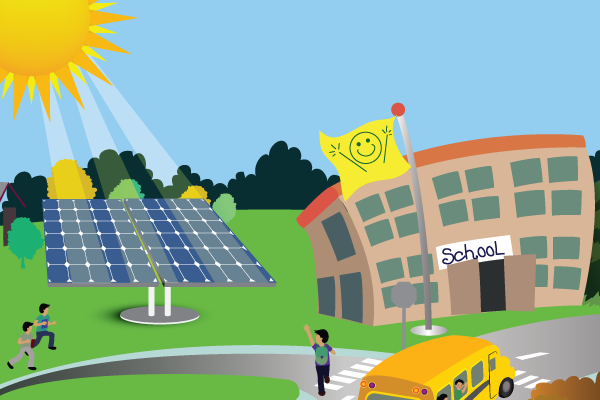Here at the Environmental Finance Center, our key role is to increase the capacity of other organizations to address the financial aspects of environmental protection and service delivery. The majority of our Center’s work focuses on providing technical training and resources and direct assistance to communities to address financial and managerial challenges of providing environmental services. We take pride in building relationships with diverse stakeholders and establishing rapport with organizations that have environmental, but not necessarily financial, interests and expertise.
Schools are one group with which the EFC is striving to work more closely, specifically to engage teachers and students in the exploration of environmental issues, water and energy conservation strategies and environmental finance. Over the past year, I worked with the EFC as an AmeriCorps service member through the Conservation Trust for North Carolina, to develop, coordinate, and launch the ‘Literacy in Environment and Finance’ (LEAF) project. Through my year-long service term, I partnered with teachers to build resources that incorporate environmental finance topics into curricula, taught in the classroom in Triangle-area schools, and helped to implement the ‘Sustainability, Energy, and Education Development’ (SEED) grant competition in the Chapel Hill-Carrboro City School district.
Through this program, the EFC has developed great relationships with folks in the education community, helped high school students win more than $31,250 in grants, and engaged more than 400 students and community members in environmental finance lessons. But in my view, perhaps the biggest success of the LEAF pilot project has been developing environmental projects with student teams. Through regular lunch-time meetings, I was able to help kids think through project feasibility, how to identify and pursue outside funding resources, connect with varied stakeholders, pinpoint difficulties and risks, and eventually implement projects. Below are three student projects we’d like to highlight and give a shout out to the teachers and young leaders working hard to make them happen:





